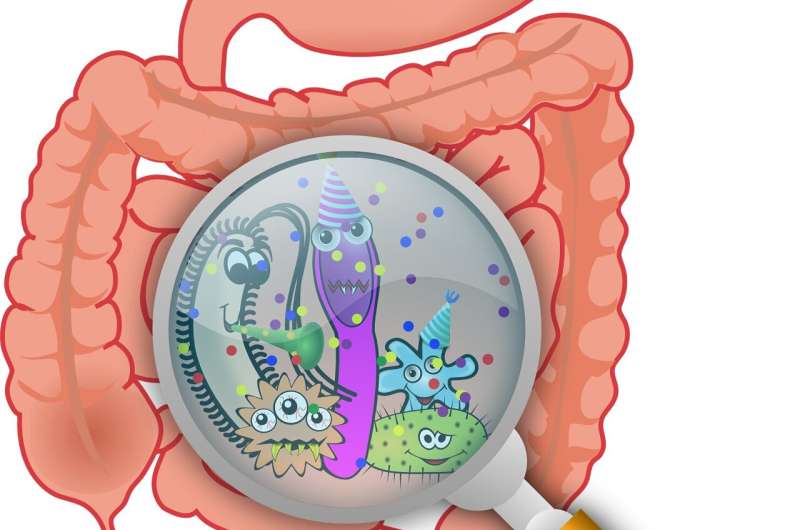This article has been reviewed according to Science X's editorial process and policies. Editors have highlighted the following attributes while ensuring the content's credibility:
fact-checked
peer-reviewed publication
trusted source
proofread
New genetic relations between irritable bowel syndrome and psychiatric diseases discovered

We have all felt the workings of the so called "brain-gut-axis," how our intestines get affected, for example, by stress. But still, researchers don't know a lot about the relation between our gut and our brain.
Research has long identified genetic correlations between patients suffering from irritable bowel syndrome (IBS) and psychiatric disorders, such as bipolar disorder.
By using new statistical methods, developed at NORMENT Centre, Post Doctor Markos Tesfaye at the University of Bergen and University of Oslo and his colleagues working under the leadership of Professor Ole Andreassen, have revealed thousands of shared genetic variants between different psychiatric patients and IBS-patients.
This sheds new light on the brain-gut axis and is a new step towards finding effective treatment for IBS.
IBS shares group of genes with schizophrenia, bipolar disease, depression, and anxiety
IBS is a gastrointestinal disease affecting approximately 10 percent of the population worldwide. The symptoms range from abdominal pain, constipation and diarrhea and the disease often cause poor quality of life.
"It's also considered being psychosomatic, as the doctors do not find evidence of pathology upon examination of the intestines," Tesfaye explains.
By using data from over 50 000 patients with IBS and hundreds of thousands of controls, and new statistical methods, the researchers managed to identify 116 new genomic risk loci for IBS.
Genomic loci are specific locations within the DNA sequence often comprising a group of variants.
They furthermore identified 70 unique loci that are shared between IBS and different psychiatric disorders: Seven with generalized anxiety disorder, 35 with major depression, 27 with bipolar disease and 15 with schizophrenia.
More knowledge about how the gut and the brain is intertwined.
Interestingly, they discovered that many of the loci related to IBS also are involved in regulating the nervous system.
"This expands our understanding of the genetics of IBS and where IBS lies in relation to gastroenterological and psychiatric diseases," says Tesfaye.
He hopes that their findings can initiate experimental research, which in turn could make it possible to develop treatments for IBS.
If, and how, problems of the intestine could cause the development of psychiatric diseases, lies beyond the scope of this article. However:
"Some researchers have reported that inflammation in the intestine may lead to disruption of the intestinal barrier and leakage of bacterial products into the circulation, which in turn may reduce the permeability of the blood brain barrier and thus the brain may be affected ", Tesfaye points out, and adds that this can become a subject for future studies.
The work is published in the journal Genome Medicine.
More information: Markos Tesfaye et al, Shared genetic architecture between irritable bowel syndrome and psychiatric disorders reveals molecular pathways of the gut-brain axis, Genome Medicine (2023). DOI: 10.1186/s13073-023-01212-4


















